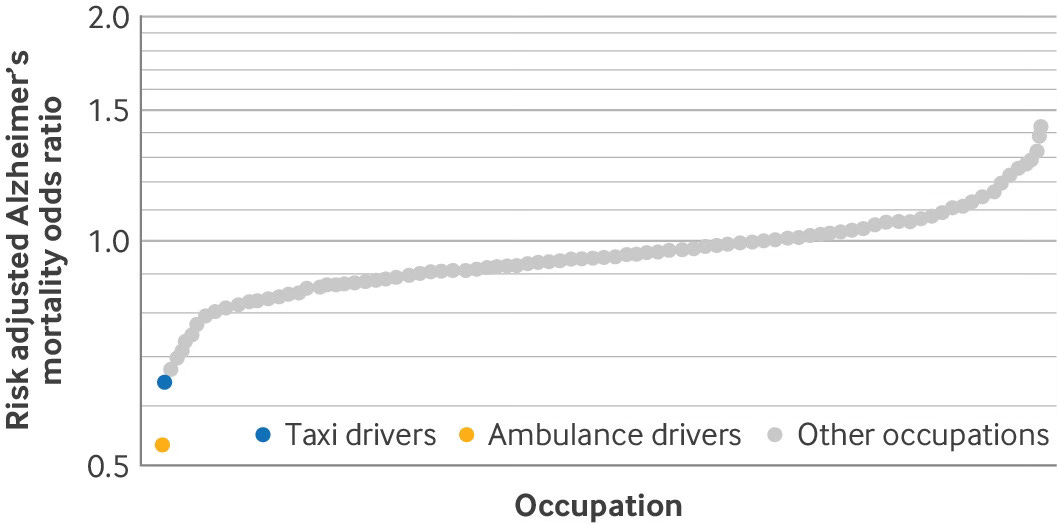In a fascinating revelation from a comprehensive U.S. mortality study, researchers have uncovered an extraordinary pattern: taxi and ambulance drivers show the lowest rates of death from Alzheimer's disease among all occupations studied. No, we are not making the case that city air is good; instead this curious finding illuminates a potential link between regular spatial navigation and protection against one of humanity's most devastating neurological conditions.
(Given the somewhat limited scope of the study, we should probably stress the word potential.)
The study, which comes out of almost 9 million death certificates from 2020-2022, found that while 3.88% of deaths overall were attributed to Alzheimer's disease, taxi drivers showed only a 1.03% rate, and ambulance drivers an even lower 0.74%. These findings remained consistent even after adjusting for age, education, and other demographic factors.
This discovery does somewhat dovetail with findings in other, earlier studies and research. It has been found that London taxi drivers develop enhanced hippocampal regions—the same brain area that Alzheimer's disease first attacks. With this new study the problem solving of city routing might also actually serve as a defense against Alzheimer's.
"… of 443 occupations considered, the two occupations with the lowest adjusted percentage of deaths from Alzheimer's disease were ambulance drivers (0.91% (95% confidence interval (CI) 0.35% to 1.48%)) and taxi drivers (1.03% (0.87% to 1.18%))."
This leads to a truly mind-boggling implication: out of hundreds of different careers spanning the entire workforce, it was these two navigation-intensive professions emerged at the very top.
So, is dynamic navigation the key cause here? Could be, as other “route-based professions” like bus drivers, pilots, and ship captains—who typically follow predetermined routes—showed no similar protection.
While the researchers emphasize that correlation doesn't prove causation, these findings open an exciting frontier in our understanding of Alzheimer's prevention. Perhaps, keeping an active and problem-solving mind, as these drivers do, doesn’t just result in getting to where you’re going or traveling clever routes, but it also might be charting a path toward better brain health.
In final to bring it all home we can unequivocally state that: better brain health is good.





